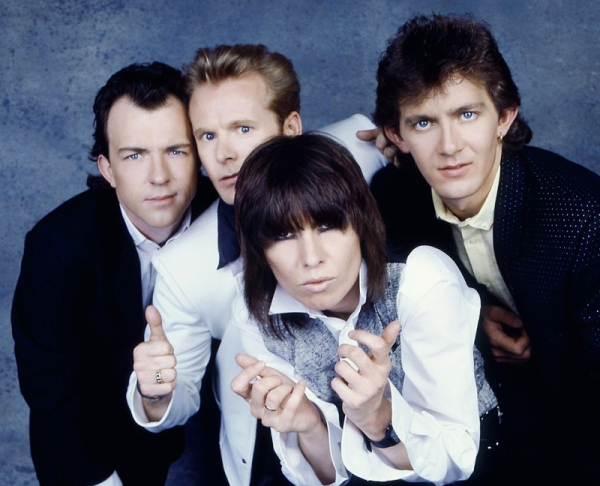
DENSE is a remarkably talented young psychedelic garage rock band from Leeds, England I’ve been following pretty much since their beginnings nearly four years ago. As their name suggests, they combine thick, fuzz-coated grooves with intricate, often explosive riffs and complex melodies to create music that’s exhilarating and intense. To best describe their distinctive sound, I’ve come up with the phrase ‘industrial surf-metal psychedelic garage rock’. Making this incredible and innovative music are Charlie Fossick (Guitar/Vocals), Dylan Metcalf (Bass) and Sam Heffer (Drums), three intelligent guys who take their music seriously, yet are still fully in touch with their playful side.
A favorite of this blog, I’ve featured DENSE numerous times over the past three and a half years, most recently last December when I reviewed their dark and gritty single “Fever Dream” (you can read some of my previous reviews by clicking on the links under ‘Related’ at the end of this post). Now the guys return with their debut EP Abjection, featuring four combustible little sticks of dynamite packed into 14 explosive minutes. The guys have gained a reputation for their electrifying live performances, and in the creation of the EP, they wanted to capture that energy and translate it into their songs. Abjection was written and recorded by DENSE, produced and mixed by Adam Bairstow, and mastered by James Grover.
It’s been gratifying to follow these guys on their musical journey, and as they’ve matured, so too has their sound, songwriting and performance, with each release sounding better and better. Abjection is their best work yet, with the band further experimenting with progressive rock elements. In a recent interview with British webzine DRAB, the band explained “The instrumentals are incidentally written to sort of be ‘progressive’ with changing moods and vibes through each song to almost tell their own story. To pair with this, Charlie usually writes taking influence from writers such as H.P. Lovecraft (i.e. cramming a horror story into a single song), and this led to us landing on the main theme of the EP being a small collection of songs that are all essentially short stories about different forms of suffering, hence the title of the EP. Looking back on that, it makes us come across a lot more bleak and depressing than we like to think we are as people!“
Opening track “Calcium” really showcases how well the three guys play as a tight unit, their respective instruments in perfect sync as they deliver a thunderous wall of psychedelic sound. Starting with Dylan’s deep, pulse-pounding bass line that serves as the song’s rapidly beating heart, Charlie layers scorching reverb-soaked riffs that rip through the airwaves while Sam aggressively smashes his drum kit. I can’t make out all the lyrics Charlie’s singing, but he screams with a ferocity that’s downright chilling. A little more than halfway through the song, we hear what sounds like jets flying as Sam starts shattering his drums with crushing beats that echo off the walls. At 2:45, Charlie lets loose with a savage volley of raging distortion, while Dylan’s relentless throbbing bass can be both heard and felt. It’s an exhilarating ride from start to finish.
As it’s title suggests, “Dread” is a dark and ominous track, with a heavy start-stop beat driven by a menacing bass line. Two thirds into the song, Charlie blows us away with an explosion of screaming distortion while Sam smashes his drums to bits. Charlie wails the lyrics that speak of depression and hopelessness: “Dark shadows surround me. So patient. So worthless. So nothing.” In that DRAB interview, he commented on his vocals: “I think as far as my vocal tone on the EP goes, I was trying to be more confident in my voice and not hide too much behind walls of reverb and delay which is a lot more comfortable for me. I never think of myself as a ‘singer’ or anyone of any significant talent vocal/lyric-wise so I wasn’t very comfortable in having my words sound clear and at the forefront. This time around I’ve decided to be a bit more vulnerable with what I wrote and how I’m performing it.”
“Electric Chair” has a rousing punk rock vibe, with gnarly reverb-soaked guitars that border on surf at times. As always, Dylan and Sam blast out a hard-driving rhythm with their intricate heavy bass line and pummeling drum beats.
The final track “Cleanse/Despair” is a reworking of their song “Irreversible Knot” that they’d previously recorded a few years ago. After changing a few lyrics and elements that make it a sharper and more polished-sounding track, they felt it needed a new name. The song begins with Dylan’s deeply-strummed bass, then we’re hit by a thunderous barrage of fuzzy distorted guitars and wildly crashing cymbals. Charlie’s echoed vocals go from sultry drones to savage wails, while he shreds his guitar nearly to bits. Halfway through the track, things calm down so that we hear only Dylan’s bass, then with a scream from Charlie, a cacophony of reverb-soaked distortion comes crashing back like a rogue wave. A second lull occurs three quarters of the way through, with a final return of tumultuous discordant musical mayhem closing out this monumental track.
All three members of DENSE are supremely talented guys who continue to blow me away with their incredible musicianship. Charlie’s guitar work is exceptional, and I think Dylan is one of the finest bassists around today. And Sam’s a literal beast on the drums. Abjection is a fantastic little EP that makes quite an impact in its 14 minute run time, and if you like music that’s complex, thrilling and dark, you will enjoy it as much as I do.
Connect with DENSE: Facebook / Twitter / Instagram
Stream their music on Spotify / Soundcloud / Apple Music
Purchase on iTunes / Bandcamp / Google Play

















